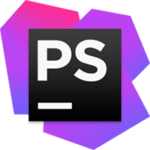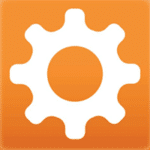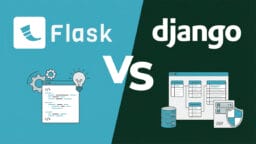Over the years, PHP has emerged as the fastest and extensively used server-side scripting language for developing web applications. Interestingly, PHP is the known server-side programming language for 78.2% of the websites developed worldwide. PHP is preferred over other server-side programming languages like Python and Ruby, owing to its adequate documentation, various ready-to-use scripts, a supportive community, and amply supported frameworks and development tools.
Why are PHP development tools important?

When building web applications, developers write hundreds of lines of code which is a time-consuming task. However, with the help of PHP development tools, developers can achieve more efficient programming by writing maintainable and well-organized code.
These tools build a sustainable IDE (Integrated Development Environment) for developers to build PHP applications with more innovative features and better accuracy.
Recommended for you: Advantages and Disadvantages of Using WordPress for Your Next PHP Project.
How do you choose the right PHP development tool?

The right PHP development tool will enhance the coding quality and help developers achieve more productivity. With a plethora of tools being developed in the industry today, organizations need to know how they can leverage it to their advantage. An ideal PHP development tool is:
- Packed with essential features like automatic spell-check, syntax highlighting, and auto-complete. Additional features can include a debugging tool for fixing unwarranted bugs and easy navigation.
- User-friendly, highly responsive, and intuitive. Speed is an equally crucial feature in a fast-paced environment.
- Compatible with Windows, Linux, and macOS. A best practice is to check for compatible platforms and programming languages before adding a tool to your tech stack.
- Capable of integrating third-party tools easily. It allows developers easy access to various benefits with one click.
However, with new and improved tools appearing in the market every day, developers are unsure while making the correct decision that will benefit the entire organization. We saw the key points to remember while selecting a PHP development tool.
10 PHP Development Tools for Developers

To take it a notch higher, we have made a list of 10 leading tools that your development team can utilize to build feature-rich and innovative PHP applications in 2022. We have highlighted the main features of every tool, so you get a gist of each one of them in one glance. Here we go:
1. Zend Studio

Zend Studio is designed to offer exceptional speed and deploy PHP applications on any server, including servers in the cloud. Therefore, it is compatible with PHP 7 and is a developers’ preferred IDE for building high-quality applications.
Some of its best features include-
- Faster coding with an intelligent code editor and easy integration with X-ray, Xdebug, and Zend Debugger.
- Supporting programming languages are PHP, Visual Basic, JavaScript, C, C++, and C#.
- Efficient debugging and PHP profiling, independently/ with Zend server.
- Interoperability with Git, GitHub, CVS, and SVN.
2. PhpStorm

This Java-based IDE is lightweight and incredibly fast and is the prime choice for PHP development tools. PhpStorm supports many PHP frameworks like Zend, Laravel, Yii, CakePHP, Symfony, and leading Content Management Systems like WordPress, Drupal, and Magento.
Some of its best features include-
- Efficient auto-completion, code refactoring, debugging with zero configuration, and unit testing.
- Easy integration with databases, command-line tools, remote deployment, composer, and version control systems.
- Live editing support for leading frontend technologies, like CSS, JavaScript, and HTML5.
- Supported programming languages such as Visual Basic, PHP, JavaScript, C, C++, and C#.
3. NuSphere PhpED

PhpED by NuSphere is an IDE that offers excellent functionality like advanced PHP editor, profiler, database client, PHP debugger, and code insight. These high-end features make the development process more simplified and error-free for the developers.
Some of its best features include-
- Proprietary PHP accelerator PhpExpress to expedite the application development process.
- Supports JavaScript, HTML, and CSS3 and is compatible with PHP 7.1.
- Dynamic syntax highlighting, parallel debugging, Workspace Manager, and faster code refactoring.
- Integration with popular PHP frameworks like Zend, Yii, and Laravel supports PHP, HTML, XML, CSS, Perl, Python, and JavaScript.
4. Netbeans

Apache Netbeans is a free, lightweight, open-source, and cross-platform IDE for building PHP applications. Built originally for Java development, it is packed with powerful features and supports multiple languages other than English such as Japanese, Russian, Brazilian Portuguese, and simple Chinese.
Some of its best features include-
- Compatibility with leading PHP frameworks like Zend, WordPress, CakePHP, FuelPHP, Smarty, and Symfony 2.
- Visual debugger, NetBeans Profiler, and intelligent code completion.
- Multiple extensions to support programming languages like C, C++, and HTML5.
- Getter setter generation, project management, intelligent code completion and editing, code templates, and efficient refactoring.
You may like: How to Build a Great Culture in Your Software Development Team?
5. AWS Cloud9

A cloud-based IDE, Cloud9 by AWS, provides a pre-configured environment to enable developers to start coding immediately. It is also advantageous for building serverless applications and writing, running, or debugging code in a browser.
Some of its best features include-
- Collaborative coding features that let developers code with their colleagues.
- Real-time language analysis and built-in debugger and image editor.
- A shareable development environment and real-time input tracking.
- Supported tooling for 40 programming languages, including PHP, Ruby, Node.js, JavaScript, Python, Go, and C++.
6. CodeLobster

CodeLobster is an excellent IDE for streamlining and modernizing the development process. It supports all the major PHP frameworks such as Laravel, CodeIgniter, CakePHP, Drupal, Symfony, Twig, Node.js, BackboneJS, and EmberJS.
Some of its best features include-
- Auto-complete feature for PHP arguments, tags, characteristics, attributes, and functions so that the developers do not need to remember them during coding.
- Built-in PHP debugger allows developers to valid their codes locally.
- Autocompletion of keywords, DOM elements, and their respective properties.
- Supported platforms include Windows, Fedora, Linux, Ubuntu, Debian, Mac OS, and Mint and languages such as PHP, JavaScript, HTML, and CSS.
7. PHP Debug Bar

PHP Debug Bar is a debugger capable of running with any project and displaying data from different web applications. This tool comprises two parts: the mainDebugBar object and data collectors and the render.
Some of its best features include-
- Inspection of CSS elements and monitor networks.
- An open-source tool with functions to display profiling data from any part of the application.
- Easy to create customized collectors and view them in the bar.
- It supports programming languages like PHP, Java, Ruby, and .Net and is compatible with PHP version 5.5 and above.
8. Aptana Studio

Aptana Studio is an open-source IDE used to build dynamic web applications. It can integrate with multiple client-side and server-side applications that use technologies like PHP, Python, CSS3, Ruby on Rails, Ruby, and HTML5.
Some of its best features include-
- Supports debuggers and Command Line Interface, allowing developers to build and test applications in the same environment and ensure faster application development.
- SFTP, FTP, IDE customization, and code assistant help developers write programs in different languages, including CSS and JavaScript.
- Integrated with popular AJAX/JavaScript popular libraries.
- Support information availability of primary internet browsers such as IE, Firefox, Opera, Netscape, and Safari.
9. Sublime Text

A powerful text editor, Sublime Text is fast, intuitive, and extendable. It is a cross-platform source code editor built to support many programming as well as markup languages natively.
Some of its best features include-
- Syntax highlight, auto-indentation, and file type recognition for writing better code.
- Custom UI toolkit helps developers navigate across symbols, words, or lines using suitable vital shortcuts.
- Advanced command palette, distraction-free mode, and plugin APIs and packages for better productivity.
- Supports all the leading programming languages.
10. Eclipse

Eclipse is one of the best PHP development tools and offers a wide range of plugins to make coding simpler for developers. In addition, this tool is customizable to suit project needs and supports both GUI and non-GUI applications.
Some of its best features include-
- Efficient functions include syntax highlighting, code assistance, restructuring, code formatting and navigation, code templates, and more.
- Supports a variety of languages such as ABAP, Ada, Lua, NATURAL, PHP, Prolog, C, C++, Haskell, COBOL, Scala, Groovy, Scheme, D, JavaScript, Fortran, Java, Julia, Perl, Ruby, Python, R, Lasso, Rust, Clojure, and Erlang.
- Adequate documentation and active community for resolving doubts.
- Syntax highlighting and content assist for better coding.
You may also like: Key Roles & Responsibilities to Build a Successful Game Development Team!
Final Words

There is no doubt that each tool in this list has unique and compelling features that make PHP application development less cumbersome and difficult for developers. However, it is essential to note that every organization has different needs and requirements. Therefore, only after a careful assessment of the features of a tool can it be successfully adopted for development.
An ideal way to pick the right PHP development tool is to make a list of your application criteria, your strengths and weaknesses, your willingness to invest in purchasing a tool or stick to open-source tools, your project guidelines, and deadlines, and finally, your team requirements. More importantly, it is also necessary to stay on top of tool upgrades and switch them in case of better features released by another PHP tool development company.
By following these steps, you can ensure faster and better application development with fewer bugs and errors. These points can also come in handy when hiring remote developers or a development agency for your development project. They can serve as a hiring guide to make sure the developers bring their A-game to the play.
This article is written by Hardik Shah. Hardik is a Tech Consultant at Simform, a leading web app development company. He leads large-scale mobility programs that cover platforms, solutions, governance, standardization, and best practices. Connect with him to discuss the best practices of software methodologies. You can follow him on LinkedIn.






